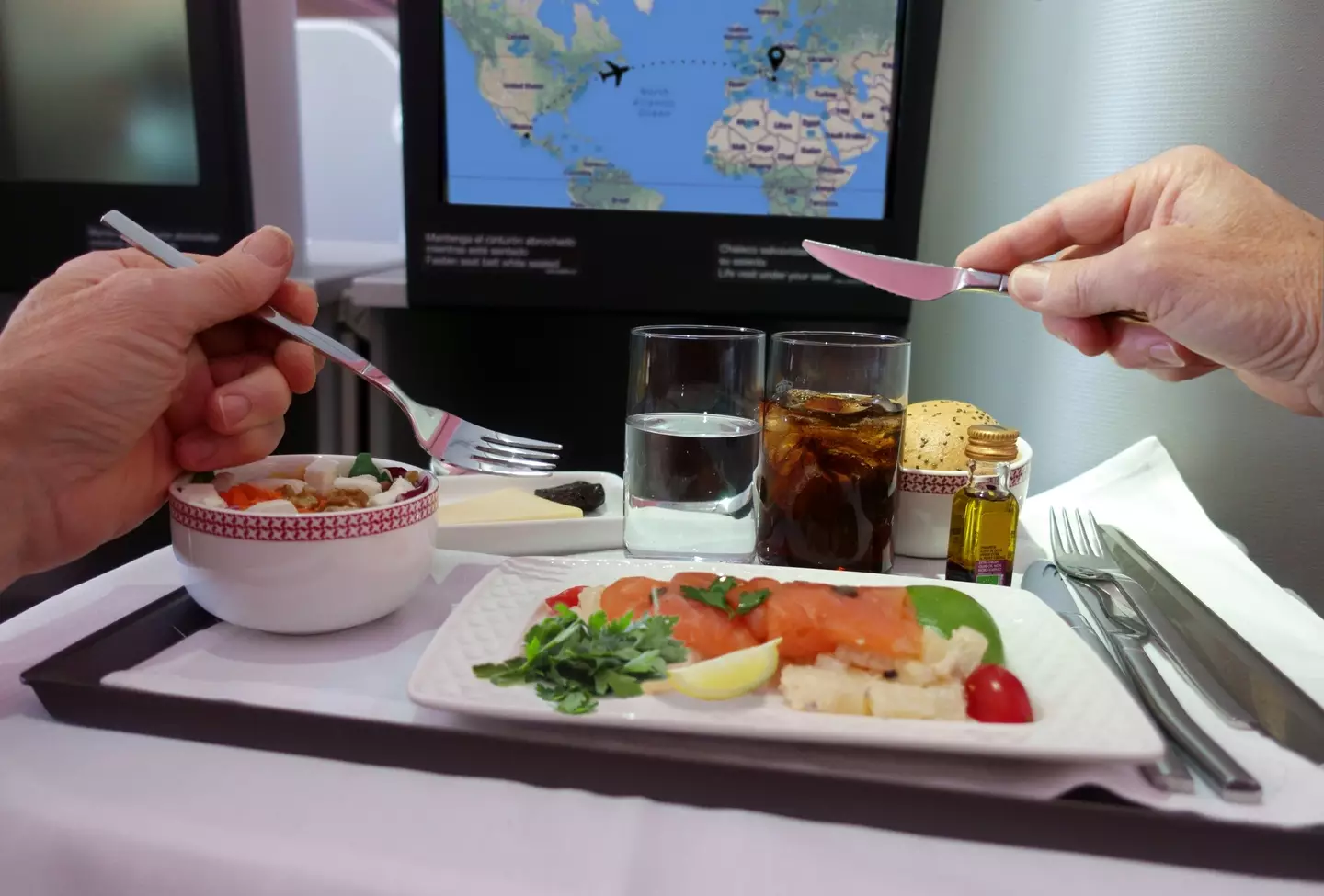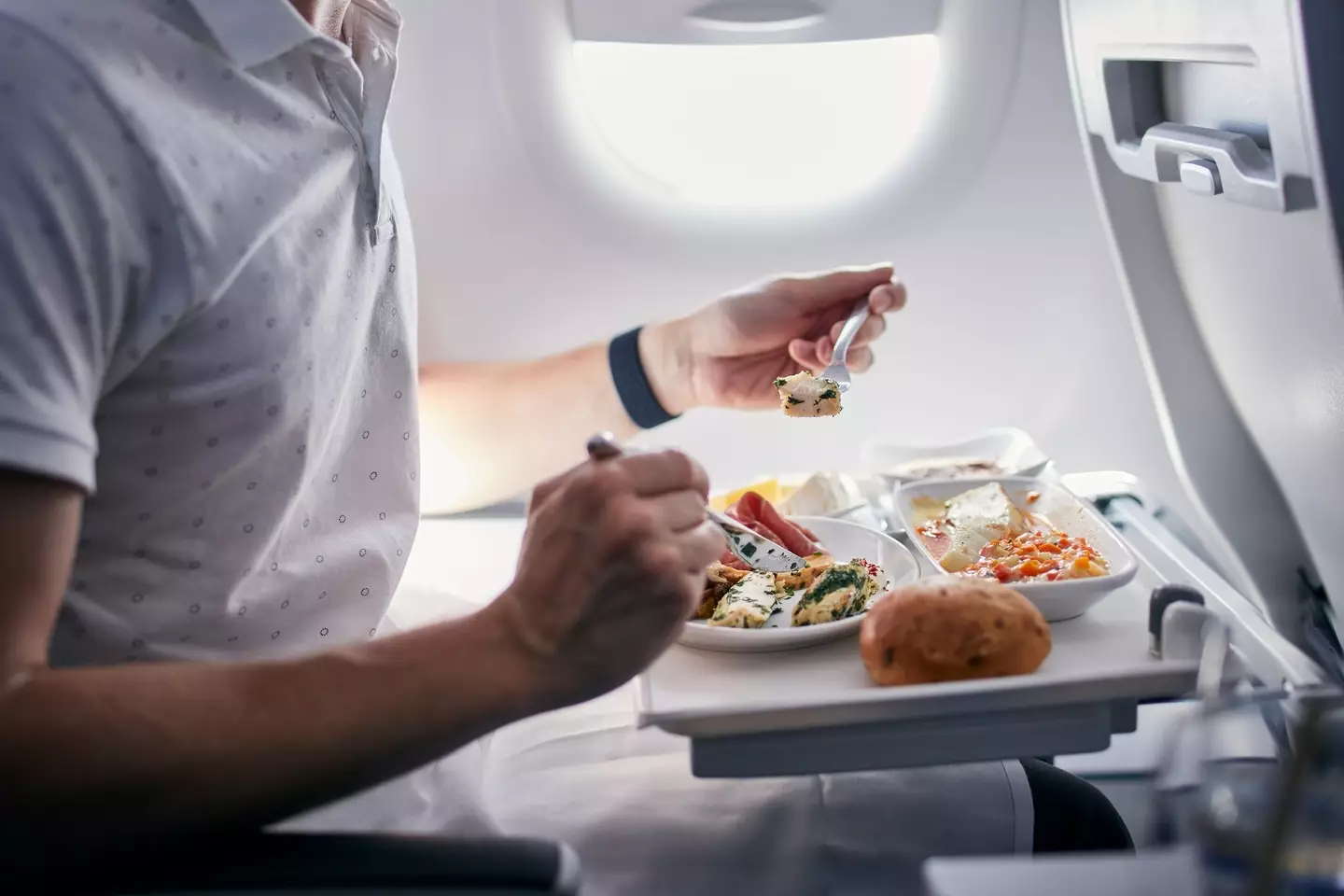
A former flight attendant has shared the one food you should avoid on a flight, and thankfully you should still have plenty of options.
When you’re midway through a long-haul flight, you might find yourself looking forward to some of the scheduled meals. They break up the monotony, and they might even taste all right.
It goes without saying that the general impression given by airplane food is pretty poor. Even for a captive audience hurtling through the sky in a metal tube, it’s tough to love an in-flight dinner.

Advert
Somewhere between a school dinner and an unbranded ready meal from the local Londis, in-flight meals might leave a lot to be desired on the quality front but they should at least tide you over.
Of course, if you’re off on your holibobs you might be concerned that an in-flight dinner could give you the dreaded squits, and that’s no way to start a holiday.
If you’re wondering what to avoid in order to spare yourself an expensive week on the toilet, former flight attendant Charlotte Crocker, 47, has got the essential advice.
Speaking to Metro, Charlotte said she worked as a cabin crew member on long-haul flights for 12 years, covering brands like Thomas Cook, Caledonian Airways, and Astraeus.
The mum-of-two ventured across much of the world during her cabin crew career, and she’s now based on terra firma where she trains new recruits and focuses particularly on their wellbeing and mental health.
As for in-flight grub, she had plenty to say about the airborne dining experience.
“It’s very difficult to have healthy food at 35,000 feet and there are several reasons for this,” she explained to Metro. “The first is that our bodies are functioning differently at that altitude, so our tastes change and the food becomes bland, so we end up having to put lots of salt and seasoning on the meals to make it taste better.
“If you’re in economy, the frozen meals are not the greatest quality and that’s because of the budget – if you want really cheap flights, you’re not going to be able to have the type of food that you get in first-class, which is of a much higher standard.
“It’s also really hard to produce decent food when you don’t have a decent kitchen at 35,000 feet and this is true no matter where you’re sitting. The galley in first-class is lovely but the ovens aren’t actually any different to the ones down the back of the plane.”
So, what does Charlotte recommend avoiding when the trolley marches up the aisle?
“Personally, I don’t drink alcohol on planes as it’s very dehydrating,” she said. “I also try to stay away from anything fizzy as well as food that’s too salty or spicy because it causes bloating and nobody wants to be unwell on a plane.”
And in terms of food: “I think it’s unlikely you’ll get food poisoning on a flight, it’s more a case of using common sense when it comes to what you’re eating,” said Charlotte. “Cabin crew are trying their best, but it gets very busy in the galley during catering, sometimes lids get dropped and salad doesn’t always get washed.
“So for that reason, I’d avoid any food (fruit and salad in particular) that isn’t served in a sealed packet.”
It makes a lot of sense. With all the will in the world, cabin crew are working in cramped conditions with a tonne of passengers to attend to. Even the most diligent crew member might fall to human error.
Charlotte then explained how she kept herself satiated during those long-haul shifts.
“I had to reprogramme myself and start taking my own food on flights,” she explained. “It’s a complete pain to have to do meal prep, but it makes such a difference and I recommend giving it a try as it’s so much better for you.

“You have to be careful and check what you’re allowed to take through the airport and on your specific flight, but I usually opt for things like packet soups, tea bags, oatcakes and instant porridge pots.
“I’ve also taken salads on 12-hour flights in a refrigerated lunch box and eaten it at around the six-hour mark. You should be fine with anything that doesn’t have too much liquid in it and won’t make you ill if it’s out of the fridge for a while.”
All sounds like sage advice from a pro. Armed with all this essential knowledge you can keep your guts healthy and even, against all odds, kick back and relax on your next flight.
Topics: Health
